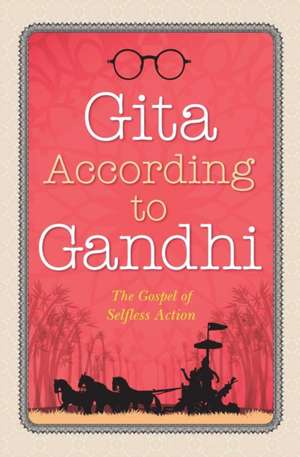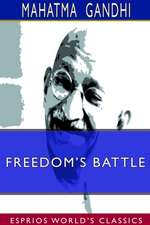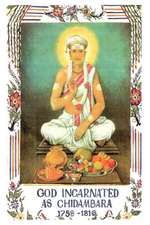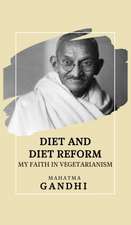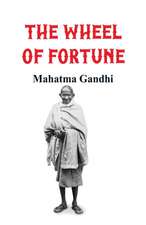Gita According to Gandhi
Autor Mahatma Gandhien Limba Engleză Paperback – 31 dec 2016
| Toate formatele și edițiile | Preț | Express |
|---|---|---|
| Paperback (1) | 102.91 lei 43-57 zile | |
| General Press – 31 dec 2016 | 102.91 lei 43-57 zile | |
| Hardback (1) | 184.24 lei 43-57 zile | |
| General Press – 31 iul 2019 | 184.24 lei 43-57 zile |
Preț: 102.91 lei
Nou
Puncte Express: 154
Preț estimativ în valută:
19.70€ • 21.40$ • 16.56£
19.70€ • 21.40$ • 16.56£
Carte tipărită la comandă
Livrare economică 21 aprilie-05 mai
Preluare comenzi: 021 569.72.76
Specificații
ISBN-13: 9788180320040
ISBN-10: 8180320049
Pagini: 222
Dimensiuni: 133 x 203 x 13 mm
Greutate: 0.24 kg
Editura: General Press
ISBN-10: 8180320049
Pagini: 222
Dimensiuni: 133 x 203 x 13 mm
Greutate: 0.24 kg
Editura: General Press
Notă biografică
Mohandas Karamchand Gandhi (2 October 1869 - 30 January 1948) was an Indian lawyer, anti-colonial nationalist, and political ethicist, who employed nonviolent resistance to lead the successful campaign for India's independence from British rule, and in turn inspired movements for civil rights and freedom across the world. The honorific Mahatma, first applied to him in 1914 in South Africa, is now used throughout the world. Born and raised in a Hindu family in coastal Gujarat, western India, Gandhi trained in law at the Inner Temple, London, and was called to the bar at age 22 in June 1891. He moved to South Africa in 1893, to represent an Indian merchant in a lawsuit. In 1915, aged 45, he returned to India. In 1921, Gandhi led nationwide campaigns for easing poverty, expanding women's rights, building religious and ethnic amity, ending untouchability, and above all for achieving Swaraj or self-rule. Nathuram Godse, a Hindu nationalist, who assassinated Gandhi on 30 January 1948 by firing three bullets into his chest. Gandhi's birthday, 2 October, is commemorated in India as Gandhi Jayanti, a national holiday, and worldwide as the International Day of Nonviolence
